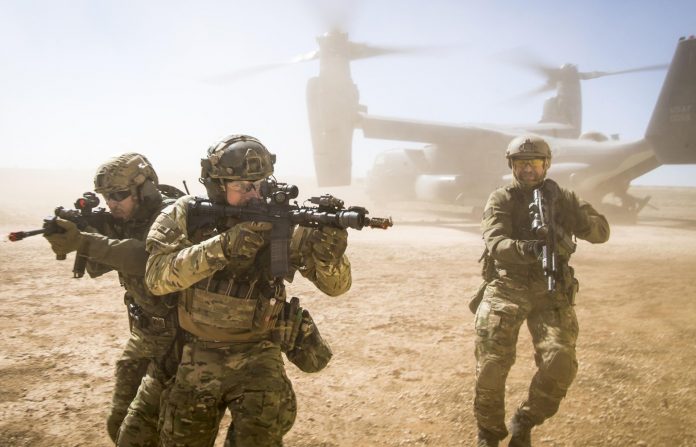
Repeated deployments by US special forces have affected discipline within the ranks, says a Pentagon report published Tuesday which called for changes in oversight.
The report concluded that near-constant assignments by special forces to Iraq, Syria, Afghanistan and Africa have reduced to a minimum the rest periods that ensure unit cohesion, but it did not find any general ethical problem that would explain a series of disciplinary incidents.
“We have a ‘can do’ culture with a bias toward action,” said General Richard Clarke, commander of US Special Operations Command, presenting the report.
“Nearly 20 years of continuous conflict have imbalanced that culture to favor force employment and mission accomplishment over the routine activities that ensure leadership, accountability, and discipline,” Clarke said.
Serving and retired officers as well as civilians in the Department of Defense prepared the report, which Clarke commissioned last summer after a series of scandals.
President Donald Trump intervened last year to support Navy SEAL platoon leader Edward Gallagher, who was acquitted of murder by a military jury but convicted of having posed for a picture next to the body of an Islamic State group fighter.
The incident led to the firing of Navy Secretary Richard Spencer, who said he and Trump did not share an understanding about “the key principles of good order and discipline.”
It fueled reports that the US military leadership was angered by Trump’s interference in disciplinary cases.
The president also granted clemency to West Point graduate Matt Golsteyn, an ex-member of the US Army Green Berets. He was charged with premeditated murder in the shooting death of an alleged Taliban bombmaker in 2010.
Special operations troops also were involved in the death of a fellow US soldier, a Green Beret, in Mali, and SEALs have been accused of using cocaine and other drugs.
In general, promotion of special forces soldiers is based on combat experience rather than leadership, the report says, recommending an approach relying more on human values and discipline of officers.
“We need to improve our leader development programs and improve accountability in our training and management processes,” Clarke said.
from Defense News by DefenceTalk.com https://ift.tt/2O9oWoB
via Defense News
No comments: